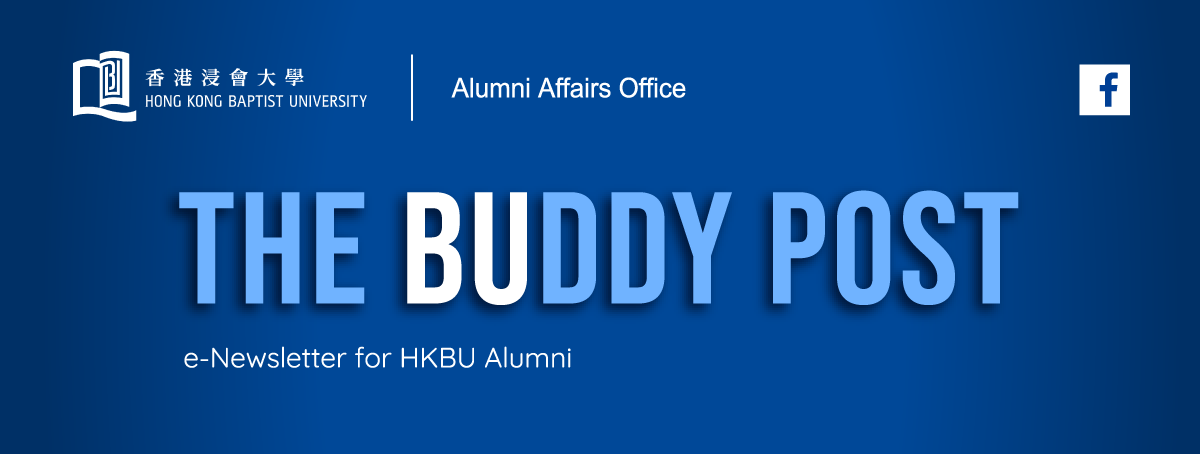启迪・新世代
自1956年成立以來,浸大已培育了逾140,000位畢業生,他們在各行各業馳騁,當中不少事業有成。我們邀請了這些前途無量的新世代校友,讓他們分享開展事業的心得及成功的秘訣。
鄧偉嫻校友分享
從商界轉戰非牟利組織 (只供英文版本)
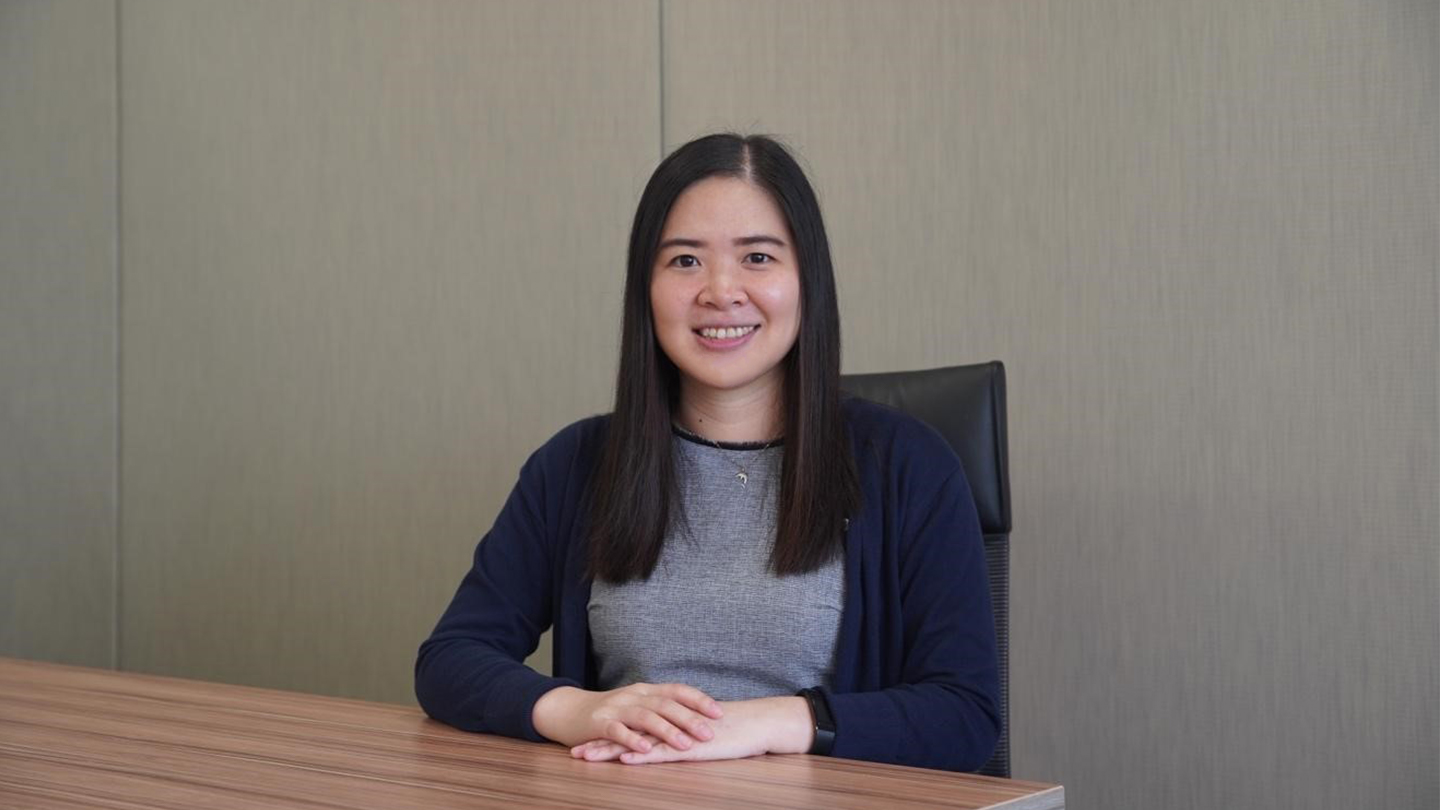
鄧偉嫻校友
Alumna Wendy Tang (History) is the Founding President of the HKBU History Alumni Association, which has recently been established. Upon graduation from HKBU, she joined South Ocean Knitters Limited, one of the world’s leading exporters and manufacturers of knitwear, as a management trainee. In 2016, she got an opportunity to join China-United States Exchange Foundation (CUSEF), an independent, non-profit and non-governmental organisation, the mission of which is to promote understanding and strengthen the relationship between China and the US through fostering open dialogue between leaders from governments, academia, and opinion leaders from cultural and business communities. Alumna Tang has always demonstrated her tactful communication technique and people management skill at work. Coupled with her passion at work, she has been promoted to Program Director at CUSEF.
1. What was your career plan upon graduating from HKBU? How did you land your first job at South Ocean Knitters?
I did not have a clear career plan when I graduated in 2014. However, deep in my mind, I knew I wanted to put myself to the test in several fields to gain experience. In my last semester, I was lucky enough to be awarded the C.Y. Tung scholarship and joined the Semester at Sea Program in 2014. This was a once-in-a-lifetime experience for me, and I completely immersed myself in the Program during the voyage. The Sea Program allowed me to travel around the world, meet new friends, and complete my studies at the same time.
When I graduated from HKBU, one of my career goals was to join a big corporation. I believe a large corporation would offer me greater exposure and more opportunities to learn, as well as allow me to develop relevant skills and expertise at a faster pace. When I returned to Hong Kong at the end of the Sea Program, I started applying for jobs online in June. One of the jobs I applied for was a management trainee (MT) position with South Ocean Knitters. I thought their MT programme was very well-structured and would provide me with good learning and career development opportunities. The interviews went well, and I was accepted into the programme and started my first job within a month after graduation.
2. The scope of services provided by South Ocean Knitters and China-United States Exchange Foundation is very different. What inspired you to switch from working in the business field to a non-profit organisation?
First of all, I have to admit that I am very grateful for all the learning opportunities during my first job, and all the mentors there who had generously spent time nurturing me in the areas of work skills and career development. Switching jobs later on in fact was not planned, it actually happened by chance. Before returning to Hong Kong, I joined a mentorship programme organised by the HKBU Alumni Association and submitted to them my resume. I applied to join the programme as I wanted to learn from our experienced alumni. One day, I received a phone call from an alumnus who told me that CUSEF was looking for someone to fill a vacant position. He thought the position perfectly matched my expertise and career goal, and encouraged me to apply for the position. I took his advice, put in an application, and finally was offered the job. I’d say, it was with an open-minded attitude, and a willingness to explore new territories that I ended up working at CUSEF.
Meanwhile, I really enjoy interacting with people from different backgrounds at CUSEF. I feel that my role at CUSEF provides me with plenty of opportunities to engage with people from different sectors of the community. This was also one of the driving factors for me to switch jobs and in the end, I ended up with a job that I’m truly passionate about.
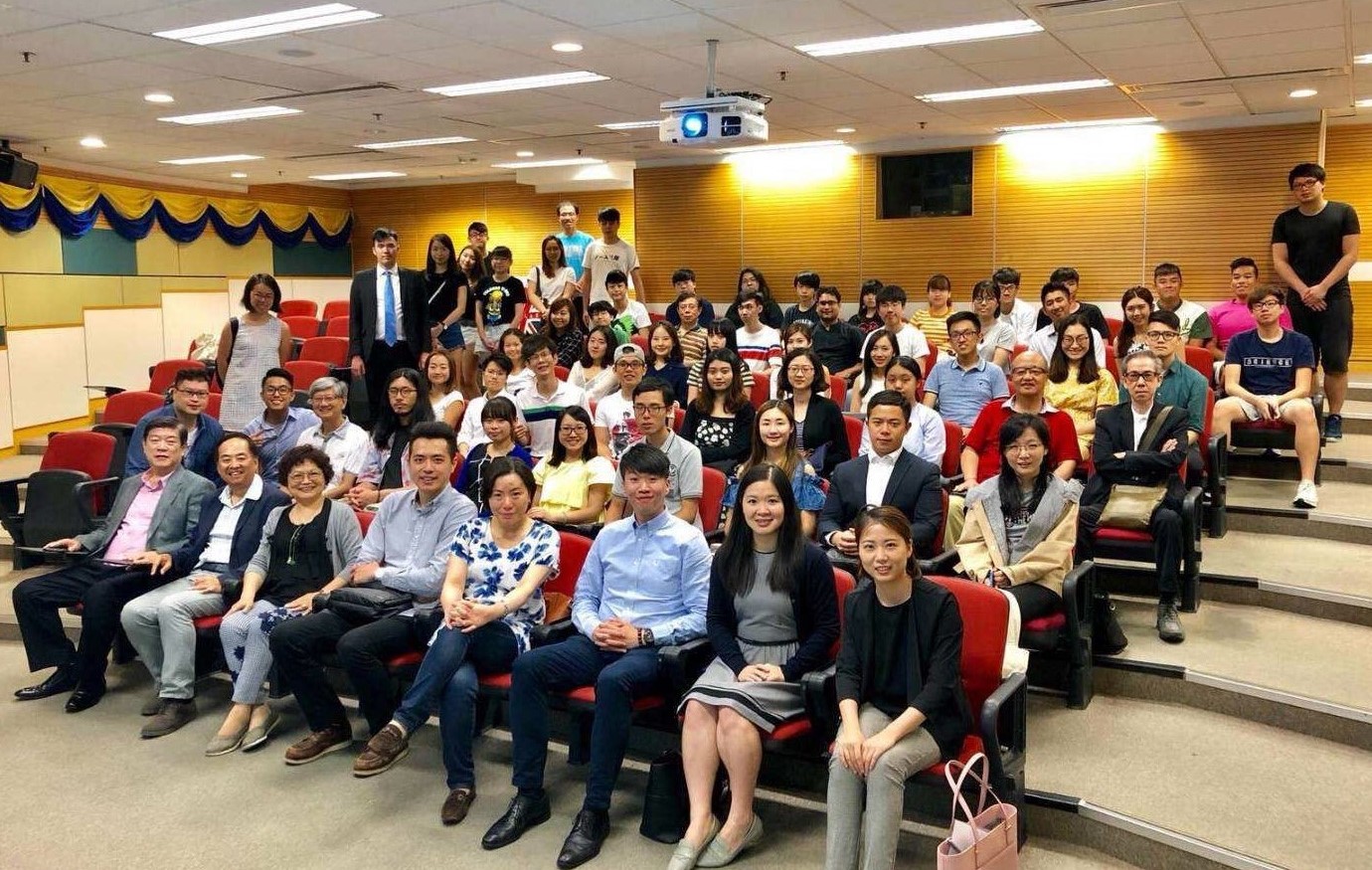
鄧校友 (第一排右二) 曾經參與由浸大校友會舉辦的學長計劃。
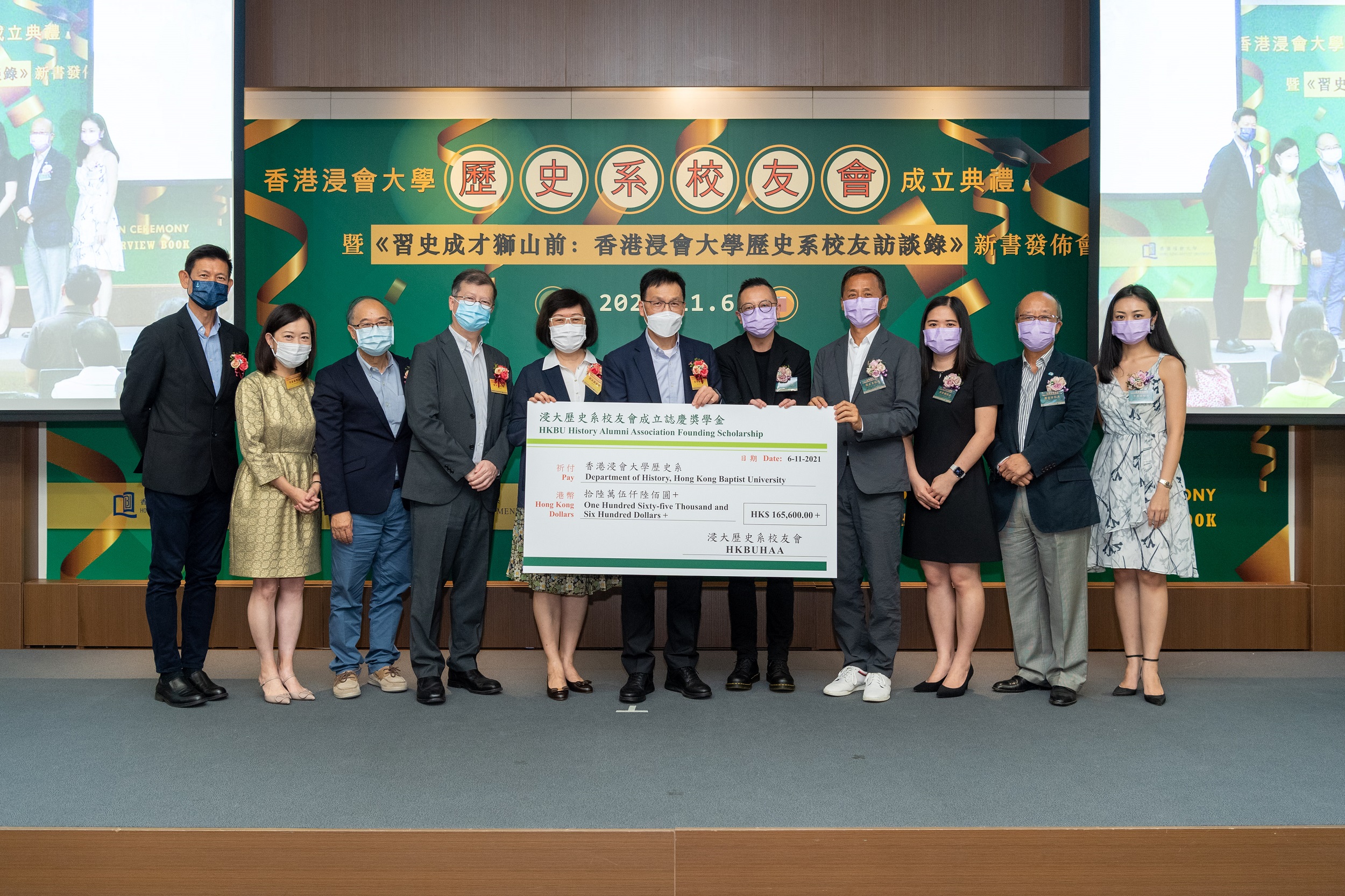
香港浸會大學歷史系校友會籌集款項捐贈歷史系,身為歷史系校友會創會主席的鄧校友 (右三) 參與支票致送儀式。
3. What were the major differences between working in a commercial firm and CUSEF? What efforts did you make to adjust to the differences without hiccups?
There are many differences between working in a commercial firm and a non-profit organisation. In a commercial firm, the main objective is to generate profit and maintain sustainable growth for the company by creating a unique value proposition for its customers. Meanwhile, at a non-profit organisation, we have clear missions, and we accomplish our goals through running different programmes and events. The commonality in both jobs is that both require strong communication skills and the ability to work with different stakeholders.
I’d say the experience that I gained from South Ocean Knitters has laid a strong foundation for me career-wise. The job rotation programme there allowed me to gain exposure from different parts of the business as I took on a variety of positions tenable at different departments. During the course, I learnt that time management and self-discipline are essential skills that must be cultivated. Under the guidance of my managers, I was actively involved in the decision-making processes, as well as in managing crises. I was able to apply these skillsets at CUSEF. For example, I always take the initiative at CUSEF to observe, learn and figure out the best ways to tackle the tasks on hand. Personally, having a growth mindset is very important to take on challenges and learn from mistakes; it encourages me to reflect and improve, and helps me progress. Meanwhile, developing problem-solving and interpersonal communication skills, as well as the willingness to learn and try new things, are all crucial.
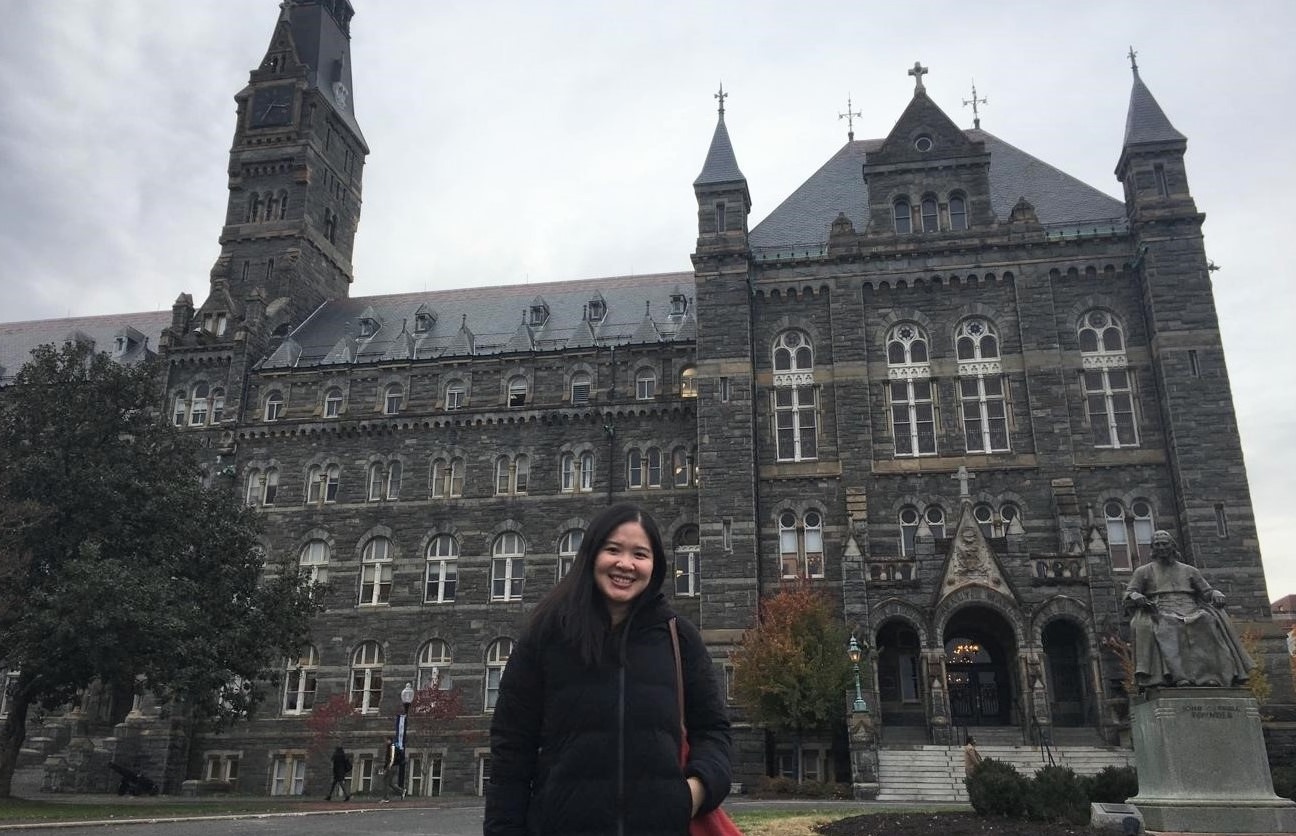
鄧偉嫻校友曾到訪位於華盛頓的喬治城大學 (Georgetown University),中美交流基金會其中一間合作的大學。
4. You have been working in China-United States Exchange Foundation for over 5 years with a promising career path. What are the crucial elements that induce you to develop your career there?
At CUSEF, my main area of focus is on education. Managing and coordinating education-related programmes is what I’m passionate about. I have many opportunities to work with professors, school administrators, and students. We travel together, learn from each other, and share our perspectives. I really enjoy my work and it is a blessing that my job at CUSEF encourages and motivates me to keep learning and growing. Some of the people I met during the course of work have also become good friends of mine and I visited some of them when I travelled to the US.
Furthermore, I have, at CUSEF, plenty of room to learn and apply my skills at work. My colleagues and I got ourselves involved first-hand in designing, implementing, and organising different programmes in collaboration with our partners. It’s a very fulfilling experience for me personally when our joint efforts lead to a successful outcome. For example, it was particularly challenging for us to host events and programmes during the pandemic. Moreover, everyone collaborated together and, by thinking out of the box, we were able to come up with innovative solutions to keep the various programmes running.
I am also lucky to have very supportive colleagues, especially the backing and trust from our Executive Director who always encourages me to learn and adopt a positive attitude at work. I’m currently also a part-time MBA student and I’m grateful that I can apply at work what I learned in class. I enjoy having the opportunity to learn and be inspired at the MBA programme.
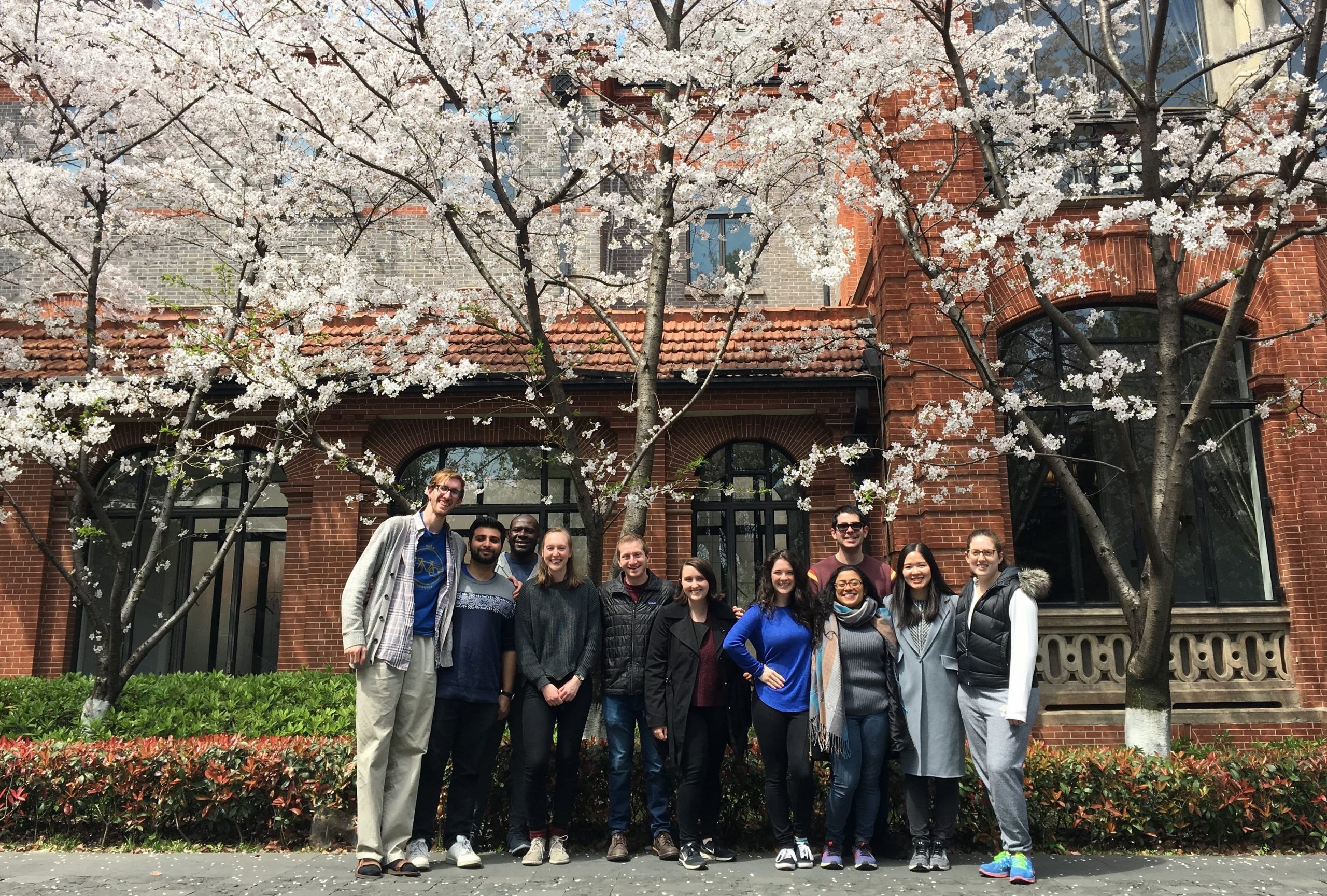
鄧校友 (右二) 的工作不時需要舉辦中美兩地學生的交流活動藉以增加彼此間的了解;她與到訪上海的芝加哥大學學生合照。




